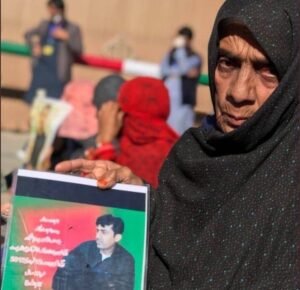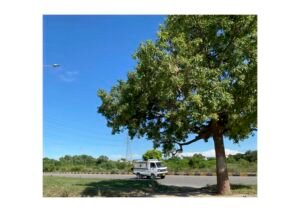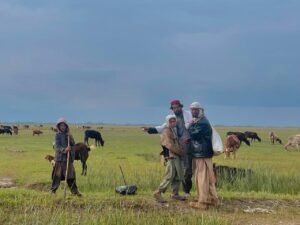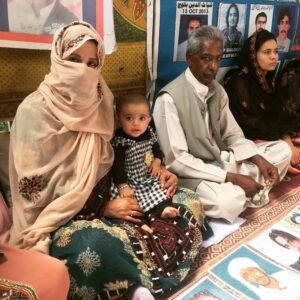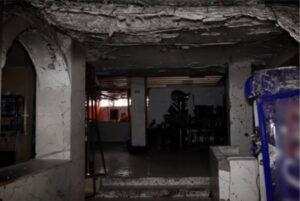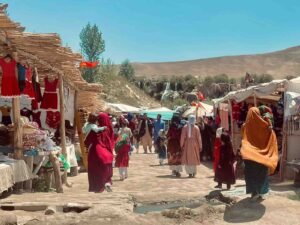A Model for Inclusive Dialogue: Reflections on the 11th Herat Security Dialogue
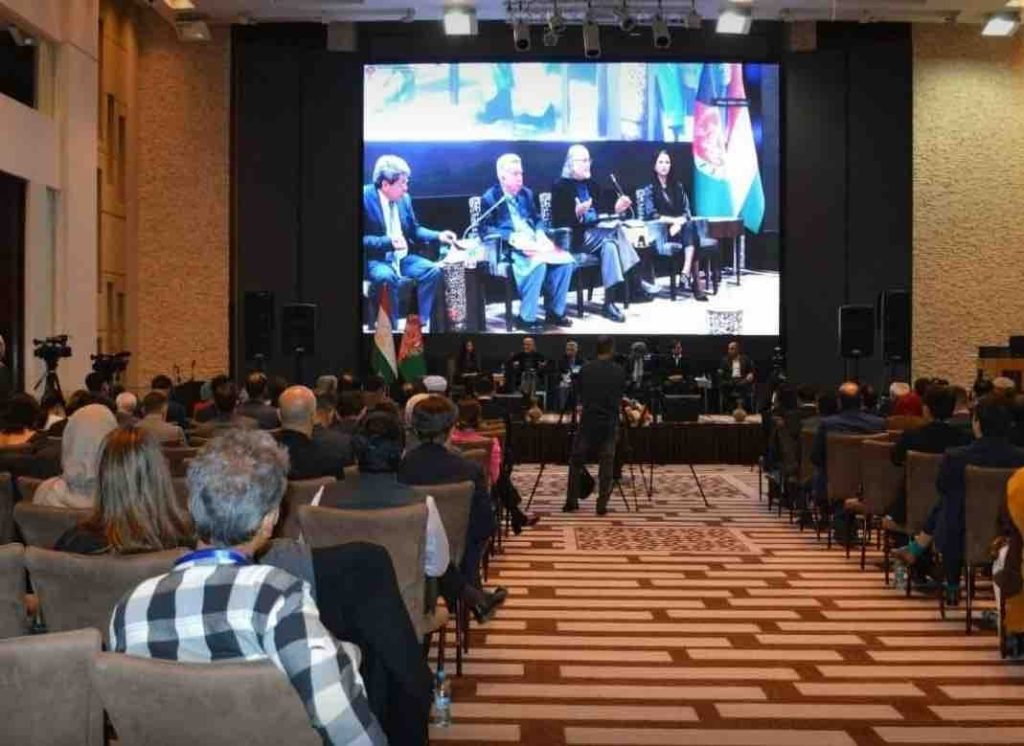
The 11th Herat Security Dialogue took place in Dushanbe, Tajikistan, organized by the Afghan Institute for Strategic Studies (AISS) on November 27th and 28th, 2023. Photo by @NazilaJamshidi.
By Nazila Jamshidi
The 11th annual Herat Security Dialogue by the Afghan Institute for Strategic Studies (AISS) took place on November 27 and 28 and was centered around the theme “Reimagining Afghanistan: Ways Forward.” Since its initiation in 2012, the conference has evolved into a vital platform for a diverse assembly of Afghanistan experts, civil society representatives, academics, domestic and international journalists, former government officials, and representatives of international organizations. The goal is to foster dialogue, seek common ground, and address the enduring conflicts in Afghanistan, providing a space to explore challenges and deliberate on viable solutions.
Similar to its predecessors, the 11th round of conferences focused on diverse political spectrums and the rights and dignity of Afghan citizens. Discussions delved into critical areas such as “Security Black Hole: A Collection of Tragedies & Threats,” “Gender Apartheid: Rhetorical Solidarity, Effective Mechanism,” “Donor Industrial Complex: Humanitarianism, Accountability, Effectiveness Instead,” “Islamic Renaissance: Post-Islamism Towards Civilizational Islam,” “Regional Consensus: Global Support,” “National Dialogue: Towards a Democratic Afghanistan,” and other pertinent themes. Experts and practitioners from Afghanistan and the region engaged in insightful conversations on these pressing topics.
The conference held significant importance from various perspectives and for several reasons. Indeed, for gathering the voices and opinions of Afghans and friends of Afghanistan, addressing the challenges such as human rights violations, the absence of an inclusive government, the humanitarian crisis, and gender apartheid. But, the significance of this year’s conference extends beyond its nature and purpose. Notably, two vital elements of the conference were the active involvement of women, who crafted and hosted almost all the conversations, and the fact that Afghans led these high-level dialogues. This inclusive approach added depth and authenticity to the discussions.
The main conference discussions, consisting of seven panels, were skillfully led and hosted by women from both Afghanistan and beyond. These carefully selected female moderators brought their expertise, professional networks, and research skills to craft and lead rich and meaningful discussions. For instance, Manizha Bahrah, a Scholar at Ankara University, Turkey, led the panel on “Nowrozistan: Persianate World; Inclusive Neighborhood,” fostering an engaging historical and academic discussion among five scholars, researchers, and educators from diverse backgrounds.
Throughout the two days, other female moderators adeptly facilitated conversations among 150 participants with varied backgrounds, professions, and viewpoints. This unique initiative by AISS not only ensures the inclusion of women’s voices in critical dialogues about the future of Afghanistan but also highlights women’s leadership on the international stage and in such discussions. Many believe that the effort should serve as a role model for future discussions on Afghanistan, emphasizing the indispensable and meaningful presence of women in shaping the country’s future.
Additionally, the 11th annual Herat Security Dialogue showcased the effectiveness of conversations about Afghanistan when run, led, and organized by Afghans themselves. Over the last two decades, especially in the aftermath of the collapse of the Islamic Republic in the past two years, numerous conferences and dialogues have taken place in different locations. Many of these were led and organized by international friends of Afghanistan. While these discussions are crucial and can bring about positive change, it is truly inspiring to witness Afghans taking the lead in important and meaningful conversations about their country and its people. This signifies a noteworthy return on the 20 years of investment in enhancing the capacity of Afghans to make decisions for themselves.
The conference was thoughtfully designed to incorporate elements such as culture, art, history, and the authentic voices of Afghan women and men. The presence of the Zohra Orchestra, also known as the Afghan Women’s Orchestra, along with Afghan singers, film directors, scholars, educators, and politicians, added authenticity to the dialogue. Each participant brought a unique story that resonates with Afghan citizens, contributing to the richness and depth of the discussions.
Thus, the 11th Herat Security Dialogue held immense significance, not only due to the nature and purpose of the meeting but also because of the leadership role played by women in shaping the conversations. The authenticity embedded in the conference structure and discussions sets it apart, making it a distinguished model to be emulated by many other Afghans and friends of Afghanistan in their future discussions about the country. This conference exemplifies a forward-looking approach, emphasizing the importance of diverse perspectives and inclusive leadership for meaningful dialogues on Afghanistan’s future.
Nazila Jamshidi – a gender equality and human rights specialist involved in Afghanistan’s development and democracy processes for the past decade – has worked for the UN, USAID, the International Federation of Red Cross.
Note: The contents of the article are of sole responsibility of the author. Afghan Diaspora Network will not be responsible for any inaccurate or incorrect statement in the articles.



